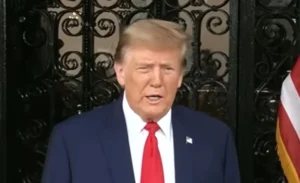When it Pays to Read the Fine Print
By TOI Desk Report
December 24, 2023
Update on : October 25, 2024

Be honest—do you always carefully read the fine print? If you’re like most people, you scroll to the end of an exhaustive Terms of Service (TOS) policy without reading a single word.
According to a Deloitte survey from 2017, a whopping 91% of Americans consent to legal terms and services without reading them. People who are 34 and under or even less likely to do this, with 97% of those ages 18 to 34 agreeing to terms of service without reading the fine print.
These figures may not come as a surprise as most of us are bombarded with TOS policies every time we go online. From cookie agreements to software updates to simply browsing the Internet, you encounter TOS at throughout your day. You merely don’t have the time, patience, or inclination to read dense legalese every time a pop-up requests your consent.
Overexposure to TOS — often in situations where not much is at stake —diminishes the efficacy of those terms and conditions that are important. When it comes to financial tasks, you’ll want to read every letter of your contract.
What is Fine Print?
Fine print represents the legal document that serves as a contract held between you and a financial institution. Banks, credit unions, online direct lenders, investment apps, and more—these organizations disclose their responsibilities to provide services to you in the fine print. Equally important, the fine print also outlines the responsibilities you have as a consumer.
For example, if you take out a personal loan online, your contract contains the details about your funds. The fine print will outline how much money you will receive, and how much money you have to repay, inclusive of all interest and finance charges. It will also make clear when you have to make these payments to avoid penalties, like late fines or added interest. Your contract should also explain how your personal loan impacts your credit score.
An online loan platform like MoneyKey uses plain language in their fine print. That’s because they want to make their contracts easy to read, so you aren’t tempted to speed read them and miss things. As one of the many legitimate online loan companies on the web today, they want you to know the true cost of borrowing, so you can use a personal loan responsibly.
Why is Reading the Fine Print Important to Your Finances?
Not all financial institutions share the same philosophy as the top legitimate online loan companies. They purposefully use complicated language to obscure your rights and responsibilities. Legalese—the technical and formal way of writing found in many contracts — are the perfect screen for junk fees and clauses.
When it comes to online personal loans, hidden fees and clauses may include advance fees or penalties for making additional payments against your debt. But any financial contract may contain surprising details if you don’t look.
Without reading the fine print, even good-faith contracts may come with surprise fees, interest you can’t afford, or terms that you unknowingly break. To ensure you aren’t blindsided by both legitimate terms and hidden fees alike, read the fine print!
Read more: When it Pays to Read the Fine Print














